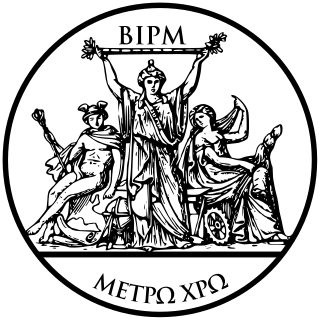
The International Bureau of Weights and Measures is an intergovernmental organisation, through which its 59 member-states act on measurement standards in areas including chemistry, ionising radiation, physical metrology, as well as the International System of Units (SI) and Coordinated Universal Time (UTC). It is based in Saint-Cloud, near Paris, France. The organisation has been referred to as IBWM in older literature.

The International Telecommunication Union (ITU) is a specialized agency of the United Nations responsible for many matters related to information and communication technologies. It was established on 17 May 1865 as the International Telegraph Union, significantly predating the UN and making it the oldest UN agency. Doreen Bogdan-Martin is the Secretary-General of ITU, the first woman to serve as its head.
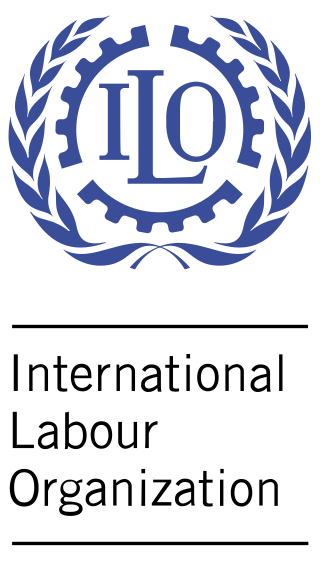
The International Labour Organization (ILO) is a United Nations agency whose mandate is to advance social and economic justice by setting international labour standards. Founded in October 1919 under the League of Nations, it is one of the first and oldest specialized agencies of the UN. The ILO has 187 member states: 186 out of 193 UN member states plus the Cook Islands. It is headquartered in Geneva, Switzerland, with around 40 field offices around the world, and employs some 3,381 staff across 107 nations, of whom 1,698 work in technical cooperation programmes and projects.

The Organization of American States is an international organization founded on 30 April 1948 to promote cooperation among its member states within the Americas.
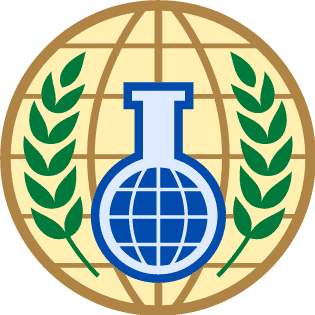
The Organisation for the Prohibition of Chemical Weapons (OPCW) is an intergovernmental organisation and the implementing body for the Chemical Weapons Convention (CWC), which entered into force on 29 April 1997. The OPCW, with its 193 member states, has its seat in The Hague, Netherlands; it oversees the global endeavour for the permanent and verifiable elimination of chemical weapons.
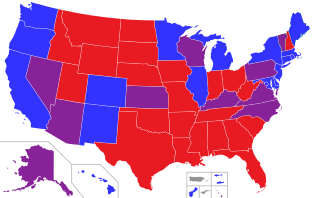
In the United States, the state legislature is the legislative branch in each of the 50 U.S. states.
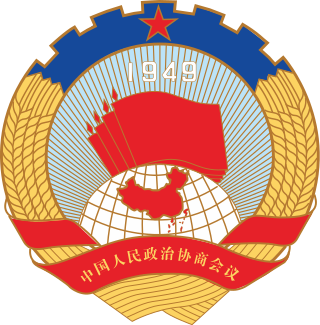
The Chinese People's Political Consultative Conference (CPPCC) is a political advisory body in the People's Republic of China and a central part of the Chinese Communist Party (CCP)'s united front system. Its members advise and put proposals for political and social issues to government bodies. However, the CPPCC is a body without real legislative power. While consultation does take place, it is supervised and directed by the CCP.
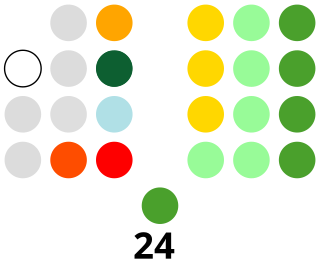
The Congress of the Philippines is the legislature of the national government of the Philippines. It is bicameral, composed of an upper body, the Senate, and a lower body, the House of Representatives, although colloquially, the term "Congress" commonly refers to just the latter. The Senate meets at the GSIS Building in Pasay, while the House of Representatives meets at the Batasang Pambansa in Quezon City, which also hosts joint sessions.

The General Assembly is the supreme decision-making body of the Organization of American States (OAS).

The Central Committee of the Chinese Communist Party, officially the Central Committee of the Communist Party of China, is the highest organ when the national congress is not in session and is tasked with carrying out congress resolutions, directing all party work, and representing the Chinese Communist Party (CCP) externally. It is currently composed of 205 full members and 171 alternate members. Members are nominally elected once every five years by the National Congress of the Chinese Communist Party. In practice, the selection process is done privately, usually through consultation of the CCP's Politburo and its corresponding Standing Committee.

The Council for Mutual Economic Assistance was an economic organization from 1949 to 1991 under the leadership of the Soviet Union that comprised the countries of the Eastern Bloc along with a number of socialist states elsewhere in the world.

The terms party conference, political convention, and party congress usually refer to a general meeting of a political party. The conference is attended by certain delegates who represent the party membership. In most political parties, the party conference is the highest decision-making body of the organization, tasked with electing or nominating the party's leaders or leadership bodies, deciding party policy, and setting the party's platform and agendas.
A business executive is a person responsible for running an organization, although the exact nature of the role varies depending on the organization.

The Louisiana State Legislature is the state legislature of the U.S. state of Louisiana. It is a bicameral body, comprising the lower house, the Louisiana House of Representatives with 105 representatives, and the upper house, the Louisiana State Senate with 39 senators. Members of each house are elected from single-member districts of roughly equal populations.

The government of Texas operates under the Constitution of Texas and consists of a unitary democratic state government operating under a presidential system that uses the Dillon Rule, as well as governments at the county and municipal levels.
A joint session or joint convention is, most broadly, when two normally separate decision-making groups meet, often in a special session or other extraordinary meeting, for a specific purpose.

The Conference on Interaction and Confidence-Building Measures in Asia (CICA) is an inter-governmental forum for enhancing cooperation towards promoting peace, security and stability in Asia. It is a forum based on the recognition that there is a close link between peace, security and stability in Asia and in the rest of the world. The key idea of the Conference is based on the priority of the indivisibility of security, joint initiative and mutually beneficial interaction of small and large states.

As established and defined by the Montana Constitution, the government of the State of Montana is composed of three branches, the Executive, Judicial, and Legislative. The powers of initiative and referendum are reserved for the citizens of Montana.
The Holy See is not a member of the United Nations but was granted permanent observer state status on 6 April 1964. In that capacity, it has the right to attend all sessions of the United Nations General Assembly, the United Nations Security Council, and the United Nations Economic and Social Council to observe their work. Accordingly, the Holy See has established permanent observer missions in New York and in Geneva and has been able to influence the decisions and recommendations of the United Nations.
Model United Nations of the University of Chicago (MUNUC) is a high school Model UN conference hosted by the University of Chicago in downtown Chicago, Illinois.















